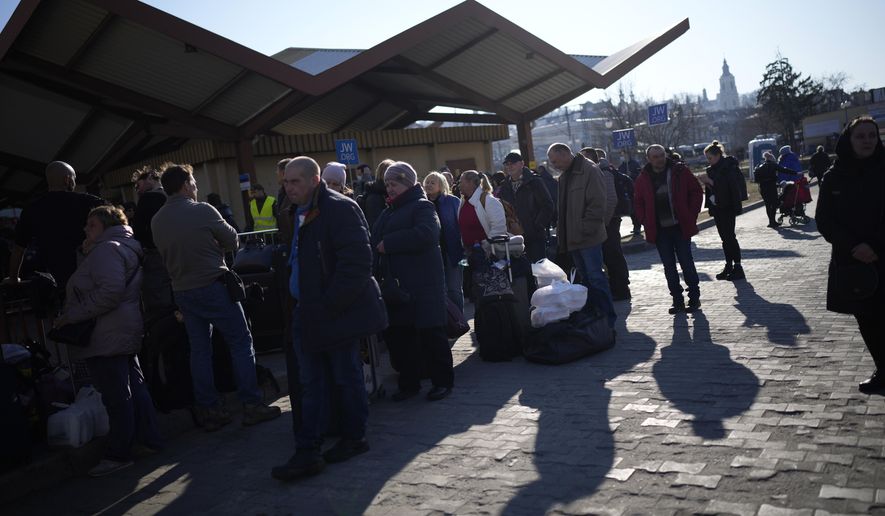The CEO of the Jewish Federation of Greater Washington visited the Poland-Ukraine border Tuesday as part of his group’s efforts to raise funds for the 1.5 million refugees who have fled to Poland.
It’s “just a constant flow of long lines on the Ukraine side, where people wait for 10, 14, or 18 hours just to get to the front and then walk over,” Gil Preuss said via phone from Warsaw, where he observed hundreds of refugees arrive at the central train station.
As of Tuesday, Mr. Preuss estimated the Jewish Federation had raised “around $1.3 million, $1.4 million” to aid the Ukrainian refugees.
An estimated 3 million Ukrainians — almost all of whom are women and children — have left the country, with half ending up in Poland. Another 2.5 million are reported to be “internally displaced,” forced by the Russian invasion to flee their homes and cities for safer areas such as western Ukraine.
“We are working hard to support the refugees and where they’re trying to go,” Mr. Preuss said. “Some of the Jewish refugees want to move to Israel, others want to stay in Poland temporarily, and some are staying in Ukraine and need ongoing support, [to get]] food and medicine where they live.”
As a constituent of the Jewish Federations of North America, Mr. Preuss’ group is working with the Joint Distribution Committee, which provides human services such as food and medicine for those arriving in Poland, and the Jewish Agency for Israel, which helps those seeking to immigrate.
Mr. Preuss, who has headed the D.C. federation since 2017, said Tuesday he also had met with volunteers — including one from the District’s Adams Morgan neighborhood-serving meals for World Central Kitchen, the charity run by D.C. celebrity chef Jose Andres.
He noted, “the incredible openness and generosity of the Polish people” who have opened their homes to refugees amid the most tragic situation in Europe in the better part of 80 years.
“There are hundreds and hundreds of volunteers at the border, actually from around the world,” he added.
“Here are people who for no reason their country was attacked, and were displaced, and are seeking a safe haven and the ability to maintain their own lives in their own country,” Mr. Preuss said. “Even though on the one hand, it may not directly impact the lives of people in Washington, as citizens in this world and residents, these are human beings.
“How can we not stand up and help other people, when we would hope that other people would do the same for us if we suddenly faced a catastrophe?” he said.
The federation, whose offices are in North Bethesda, has established a website with information on its outreach in Ukraine.
• Mark A. Kellner can be reached at mkellner@washingtontimes.com.




Please read our comment policy before commenting.